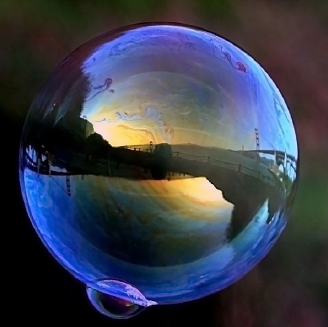The Anti-Intellectualism of the Wash U Bubble
BY OLA ABIOSE
College admissions season is in full swing, and few things are more surreal than nearing the end of college life and looking upon those eagerly waiting to begin. So, in an overwhelming bout of nostalgia, I decided to sneakily join a campus tour on my way to class, just to take one last walk down memory lane.
One set of parents turned out to be far more inquisitive than the prospective student who accompanied them, much to everyone’s delight. Among a barrage of questions, they asked: “We read on College Confidential that there’s a sort of ‘Wash U Bubble.’ How would one go about popping it, if you will? No pun intended.”
Beyond a visceral recognition of the fact that puns are profoundly unfunny, I made another realization:
I am sick of hearing about the “Wash U Bubble.”
Maybe it’s due to the inevitable accompaniment of “unnecessary” quotes with the term or maybe it’s because the phrase lends itself to all sorts of cutesy bubble metaphors that make a mockery of the entire concept. But there’s something about our offhand references to the phrase that has rendered it a platitude and has minimized the true perniciousness behind the concept of a college bubble.
The Wash U Bubble is widely understood but not singularly defined: it can refer to the self-absorption we as students often fall into while trying to maintain hectic schedules, the social and political unawareness that results from being consumed with work, or the failure of a large portion of students to venture further than a mile or two outside of campus. Most times it’s a reference to all of these. And while there’s much lamentation over the existence of a bubble, and a variety of suggestions as to how to “burst” it, there is an implicit understanding that it might be a necessary consequence of our collegiate experience. At the end of the day, we’re here first and foremost as students: we owe it to ourselves to get a good education.
After all, during Convocation this year, freshmen were told, “The door has been opened for you to get an education.” And, as we attend one of the nation’s foremost academic institutions, there’s no doubting the truth of that statement. I only wish that the message had been accompanied with Mark Twain’s advice: never let your schooling interfere with your education. Because when outside world experiences are posited as distinct from mental development, when isolation and desensitization are condoned for the sake of academic success, when the Wash U Bubble becomes tolerated as an unavoidable feature of the college experience, then our schooling has become anti-intellectual.
I’ll give a personal example. Near the end of my sophomore year, I learned that Angela Davis was going to be speaking at the St. Louis Public Library for free. I was looking forward to it for weeks and could hardly contain my excitement at the thought of hearing from one of the country’s most famous political activists and one of my own personal heroes. But on the day of the event, I realized just how swamped I was for an upcoming test. And less than 45 minutes before Angela Davis was scheduled to speak, I cancelled my plans to attend the lecture. Even today, I still can’t help but cringe at the absurdity of that situation: I can’t tell you what class I was studying for (I think it was maybe Introduction to Cognitive Science) nor can I tell you what grade I got on that test. But there’s no doubt in my mind that I would have remembered that lecture vividly for years to come.
It’s in this way that the Wash U Bubble is antithetical to our educational development here. I’m not advocating altogether ditching one’s academic responsibilities, nor am I trying to minimize the immense opportunity we have at this school. I just don’t understand why we are complacent with a physical and mental isolation from the rest of the world, with a “Wash U Bubble.” There’s a contradiction between claiming to being committed to seeking knowledge and then falling into the trap of believing that the ivory tower holds the monopoly on such. And assuming that intellectual development can operate in a vacuum—when we’re completely desensitized to the greater inequalities and injustices of the outside world, especially in our own backyard—is shortsighted. We may always chuckle at the myriad of puns that can be constructed with the “Wash U Bubble,” but until we realize just how threatening it is to our learning and personal growth, we may never commit to “popping” it for good.

1 Comment
Join the discussion and tell us your opinion.
Great article, completely agree.